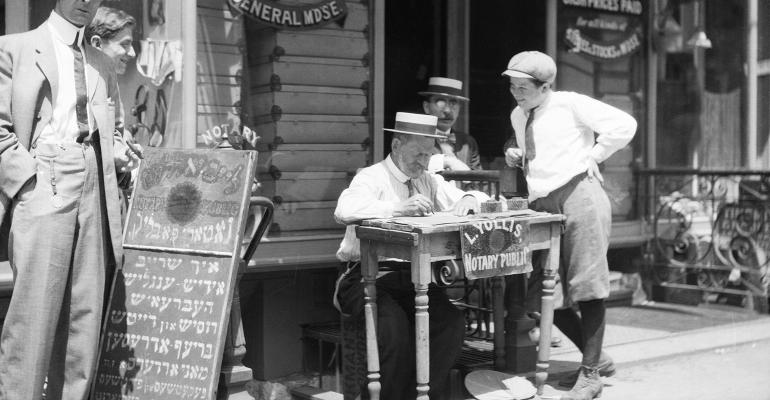As attorneys and their clients adjust to the current realities of social distancing during the COVID-19 pandemic, one of the most pressing issues facing estate planners is how to have documents properly notarized without having the notary and signatory in the same physical space.
As the result of collaboration between estate planning attorneys, the real estate bar, and legislators, a bill responding to this emergency need has been drafted and is working its way through the Massachusetts legislature.
While attorneys wait for its passage, they’re already looking to see how this new legislation can be incorporated into their practices as a means to continue work while protecting the health and safety of their clients and themselves.
Massachusetts SD 2882 “An Act relative to remote notarization during COVID-19 state of emergency” (the “Act”) is currently still in draft form and its final language remains fluid. Please check with your legal counsel before attempting to execute any document utilizing remote notarization.
The Act allows an (i) attorneyor (ii) paralegalunder the direct supervision of an attorney to perform any notarial act utilizing real-time electronic video conferencing so long as all parties are physically located within the Commonwealth during the videoconference. [NOTE: there is some possibility that the final bill will allow allnotaries to perform remote acts, but as of the date of publishing, this provision has not been approved.] During the videoconference, the notary must ensure the following elements are completed:
- The principal will swear under the pains and penalties of perjury that he/she is physically located within the Commonwealth;
- The principal will visually display his or her identification credential to the notary and the notary will visually inspect such credential [NOTE: personal knowledge of the principal is also satisfactory evidence of identification];
- The principal will disclose and visually verify on video all persons present in the room with the principal [NOTE: the witnesses to the document may be in a separate location so long as all parties are present for the videoconference at the same time];
- The principal will acknowledge that the documents being signed are to be notarized remotely under the laws of the Commonwealth; and
- The principal and witnesses will execute the subject documents and the notary will complete any required affirmation, acknowledgement and other acts as a notary, as appropriate.
- NOTE: for all documents other than “Estate Planning Documents” such as wills, trusts, durable powers of attorney, health care proxies, caregiver affidavits and nominations of guardian/conservators a second video conference must take place to confirm receipt of the original documents. More information regarding the second videoconference is available in the text of the Act.
Once the documents are complete, the principal and witnesses must deliver the original, signed, documents to the notary. The notary must complete an affidavit confirming that the required elements of the videoconference were properly overseen (a sample affidavit is provided at the bottom of the page, and the notary shall retain the affidavit for 10 years). [NOTE: While not required by the Act, it may be best practice for the notary to retain a copy of the videoconference for 10 years as well.] The document is valid when signed by all parties, but is deemed “complete” when the notary compiles all of the original counterpart signatures and the affidavit (including copies of the identification documents) with the complete document.
As the Act progresses, it is important to consult with your legal counsel before attempting to execute any document utilizing remote notarization.
About the Author:
Heidi A. Seely is a Trusts and Estates lawyer at Rackemann, Sawyer & Brewsterand can be reached at [email protected].





